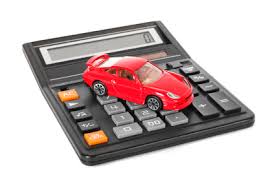Which is Better: Personal Loan or Debt Consolidation? Let’s explore the benefits, drawbacks, and eligibility requirements to help you compare and make the right choice.
Which is Better: Personal Loan or Debt Consolidation – Make an informed choice !
Managing multiple outstanding debts can be overwhelming, especially with high interest rates, late penalties, and varying monthly payments. If you’re looking for ways to clear debt, reduce financial stress, and simplify payments, you might consider either a personal loan or debt consolidation. But which option is best for your unique situation? Let’s explore the benefits, drawbacks, and eligibility requirements to help you compare and make the right choice.
Understanding Personal Loans
A personal loan is a lump sum of money borrowed from a lender, typically with fixed interest rates and structured monthly payments. These loans can be used for various financial needs, including debt relief, home improvements, medical expenses, or even major purchases.
Pros of Personal Loans:
- Fast approval and funding – Many lenders offer next-day deposits for approved applicants.
- Flexible usage – Funds can be used for multiple purposes, including consolidating credit card balances or unexpected expenses.
- Fixed interest rates – Protect yourself from fluctuating rates over the repayment period.
- Available for different credit scores – Options exist for borrowers with both excellent and low credit.
Cons of Personal Loans:
- Higher interest rates for low credit – If you have a poor credit score, you might face high interest rates.
- Origination fees – Some lenders charge fees that increase the total cost of borrowing.
- Impact on credit score – Applying for multiple loans can temporarily lower your score.
Understanding Debt Consolidation
Debt consolidation is the process of merging multiple debts into a single loan or program, often with lower interest rates and a simplified repayment structure. It can be done through a debt consolidation loan or a structured debt relief program.
Pros of Debt Consolidation:
- Lower interest rates – Reduce high-interest debt by securing a lower, fixed rate.
- Simplified payments – Merge outstanding balances into one easy-to-manage monthly payment.
- Potential savings on fees – Reduce or eliminate late penalties and extra fees.
- Helps avoid bankruptcy – A viable bankruptcy alternative for those struggling with significant debt.
Cons of Debt Consolidation:
- May require collateral – Some consolidation loans require assets such as home equity.
- Longer repayment terms – While payments are lower, it could take longer to pay off your debt.
- Not all debts are eligible – Certain loans and obligations may not qualify for consolidation.
Key Comparisons: Personal Loan vs. Debt Consolidation
| Feature | Personal Loan | Debt Consolidation Loan |
|---|---|---|
| Usage | Versatile | Primarily for merging debt |
| Interest Rates | Fixed, may be high for low credit | Typically lower, especially with good credit |
| Approval Speed | Fast (sometimes next day) | May take longer, depending on lender |
| Effect on Credit Score | May decrease initially but improve with on-time payments | Can improve credit over time |
| Fees | Possible origination fees | Possible balance transfer or processing fees |
| Repayment Period | Varies, usually 2-7 years | Often longer, but lower monthly payments |
Choosing the Best Option for Your Unique Situation
The decision between a personal loan and debt consolidation depends on your financial circumstances, goals, and credit score. Below are some key considerations:
Choose a Personal Loan If:
- You need fast funding for immediate expenses.
- You have a good credit score and can secure low interest rates.
- You prefer flexibility in how you use the loan.
- You have a short-term financial need and want structured monthly payments.
Choose Debt Consolidation If:
- You have multiple high-interest debts and want to merge them into one payment.
- You’re struggling with late penalties and inconsistent due dates.
- You’re looking for a custom debt relief solution to pay off debt over time.
- You need bankruptcy alternatives but want to maintain a structured repayment plan.
How to Get Started: Online & Hassle-Free Application
Many lenders provide digital platforms where you can compare loan options, check your savings estimate, and apply today without affecting your credit score. Here’s how to get started:
Check Your Credit Score: Understanding your credit rating will help determine eligibility and potential interest rates.
Compare Loan Options: Research online lenders, banks, and credit unions to find the best loan terms.
Calculate Your Savings Estimate: Use a loan calculator to estimate monthly payments and interest savings.
Apply for Pre-Approval: Many lenders offer a secure and fast pre-approval process.
Submit Your Application: Provide necessary documents, including proof of income and identification.
Get Funded: Upon approval, funds may be disbursed as soon as the next day.
Final Thoughts: Which Loan is Right for You?
Both personal loans and debt consolidation loans offer valuable financial solutions, but the best option depends on your specific needs. If you require immediate funding for various expenses, a personal loan might be the best choice. However, if your primary goal is debt relief and simplifying payments, debt consolidation could provide long-term financial benefits.
Take control of your finances today—explore your options, compare lenders, and apply online for a fast, hassle-free loan approval. Whether you choose a personal loan or debt consolidation, finding the right solution can help you secure financial stability and pay off debt efficiently.
RELATED TOPICS
Credit card with lounge access and low annual fees
How to get travel insurance for a cruise
Cash buyers for Commercial property
Investing in Gold Bullion with little money
How to find off-market properties for free
Online business ideas without investment
Real estate agency for renting villas in Sardinia

